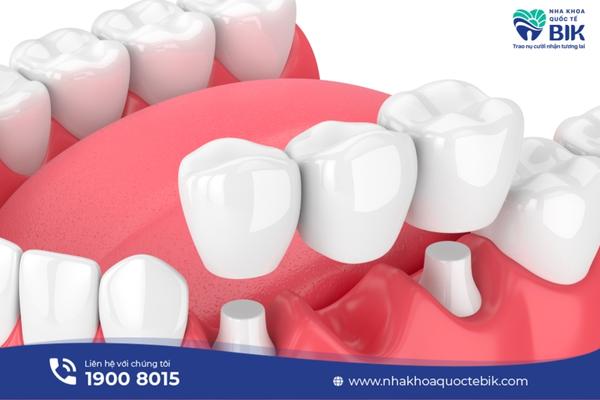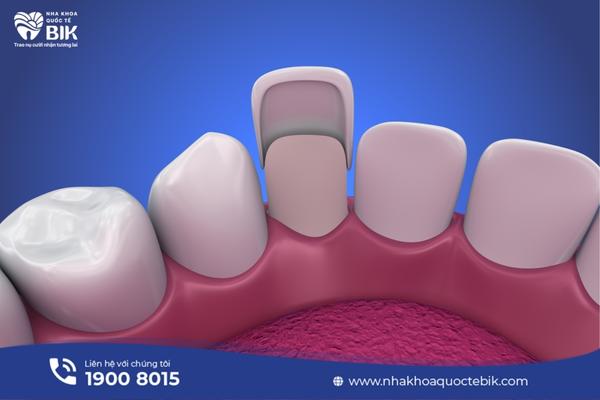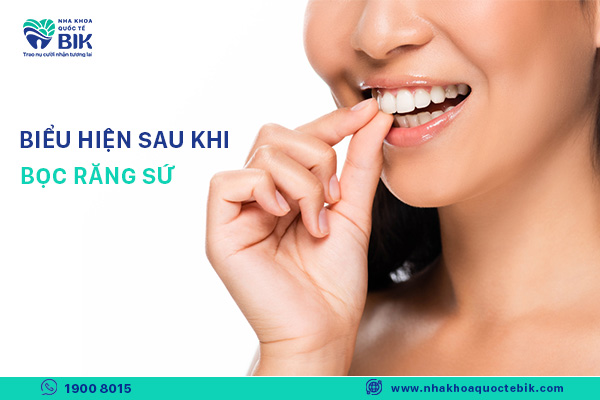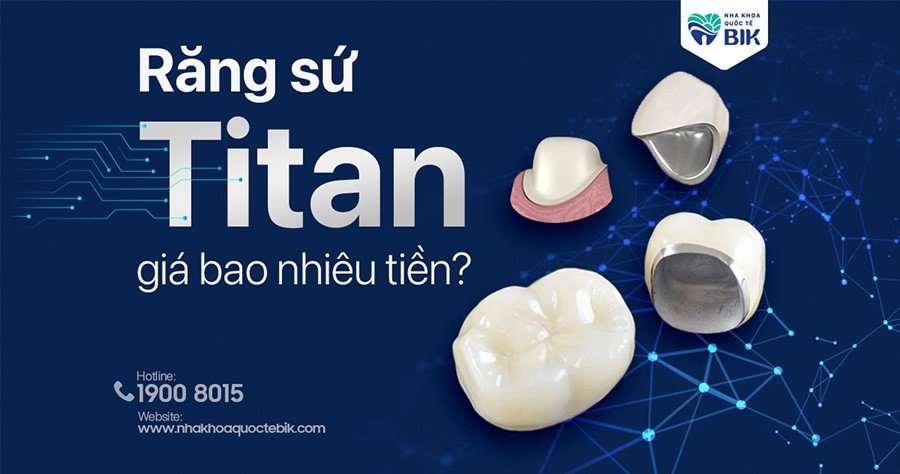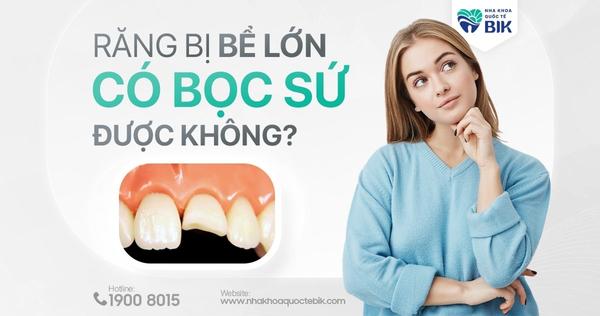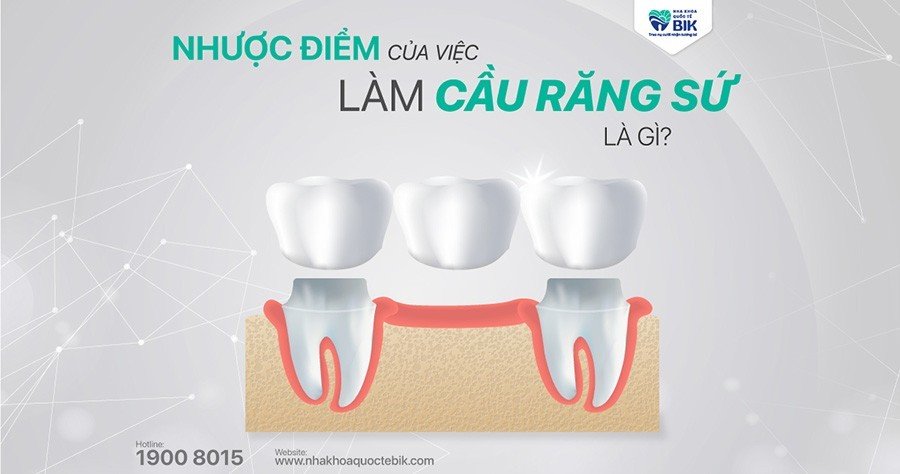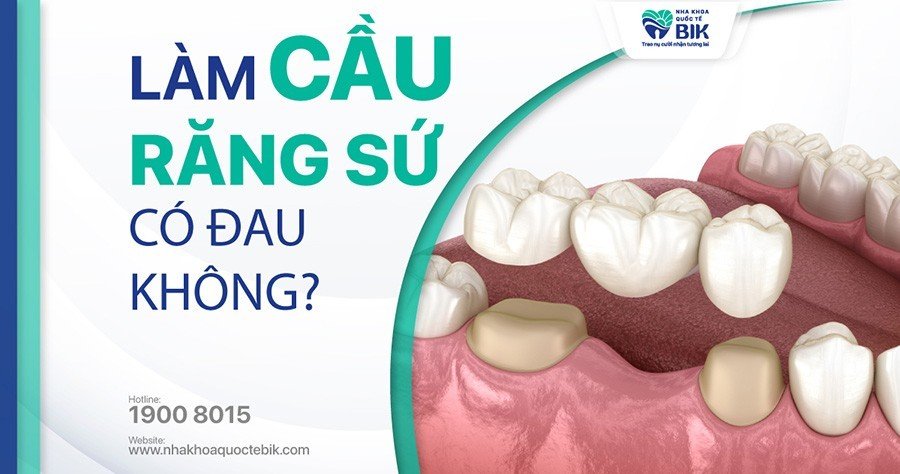Porcelain crowns are a popular restoration method to enhance the aesthetics of teeth and will be effective after a very short period of time. However, whether porcelain crowns are good or not depends on many factors. The most important of which is whether your oral health is good enough to have porcelain crowns.
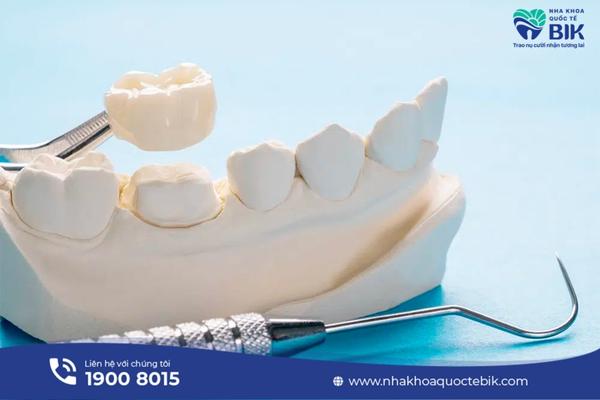
1. What are porcelain crowns?
Porcelain crowns are a popular restoration method to overcome the aesthetic defects of teeth. To perform the porcelain crown method, the doctor will grind the enamel of the real tooth according to a certain ratio. The ground real tooth will be used as a support for the porcelain crown above. The porcelain crown is made with the same shape, size and color as the real tooth, so it will bring a very high aesthetic effect.
2. Are porcelain crowns good?
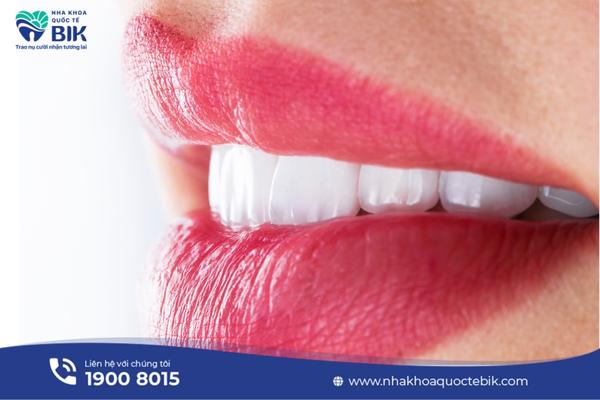
Are porcelain crowns good? If you apply porcelain crowns according to international standards, you will get the following benefits:
2.1. Improve aesthetics
Porcelain crowns can completely fix dental problems such as: discolored teeth, spaced teeth, uneven teeth, chipped teeth or mild buck teeth. In addition, the color of the porcelain crown will also be adjusted to best suit your skin tone, so that your teeth are even and naturally beautiful.
2.2. Save time
Compared to another popular orthodontic method, braces, the time factor is the strongest advantage of porcelain crowns. Braces usually last from 1-2 years, while after only about 3 days with porcelain crowns, you can have a new smile.
2.3. High durability of porcelain teeth
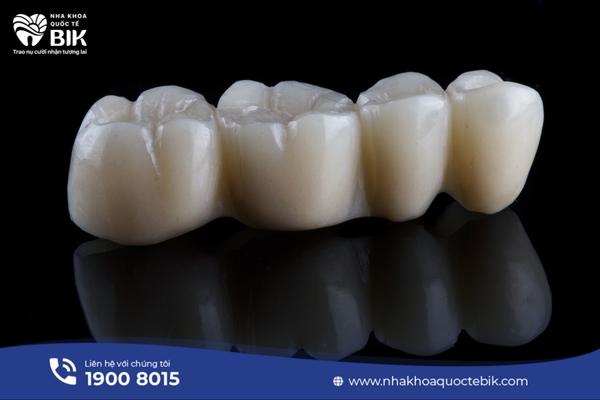
There are many types of porcelain teeth, often made entirely from porcelain or partly from hard metals, Titanium. These materials are tested to have very high durability, so you can be completely assured of the long-term stability of porcelain teeth.
2.4. Porcelain teeth protect real teeth well
In the oral environment, temperature and bacteria will make diseases such as tooth decay and periodontitis very easy to arise or recur. Porcelain crowns will help protect real teeth from strong impacts such as chewing or bacteria from leftover food.
2.5. Helps restore chewing ability
Porcelain crowns help partially correct the condition of misaligned teeth and misaligned bites, so they will improve chewing ability relatively.
3. Cases where porcelain crowns should not be used
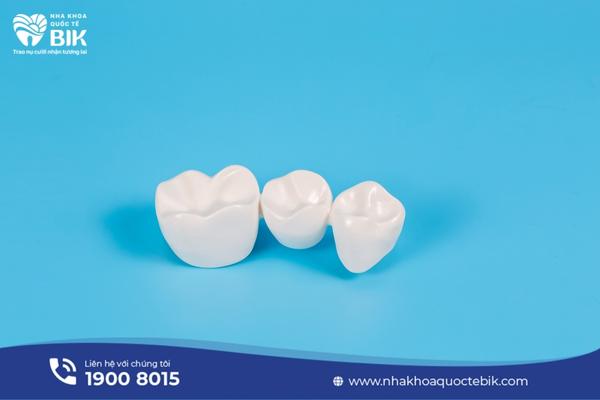
Despite its many benefits, porcelain crowns are not the method for all dental cases.
3.1. Severe bite misalignment
For severe cases of overbite or underbite due to jawbone structure, porcelain crowns are completely ineffective. You can choose braces or surgery to move the jawbone back to the correct position.
3.2. Loose teeth
For adults, loose teeth mean that the tooth root is no longer strong. If the tooth stump is ground down, the tooth will become weaker and more vulnerable. The tooth root is also not strong enough to support the porcelain crown on the outside.
3.3. Teeth with other diseases
In cases of tooth decay, infection or severe periodontitis, it is not possible to grind the tooth stump to cover the tooth with porcelain crown.
3.4. Sensitive teeth
In the porcelain crown process, there will be a step of grinding the real tooth stump. Although this does not affect the tooth structure or pulp, if you have sensitive teeth, you may have problems eating and drinking.
4. Possible effects after porcelain crowns
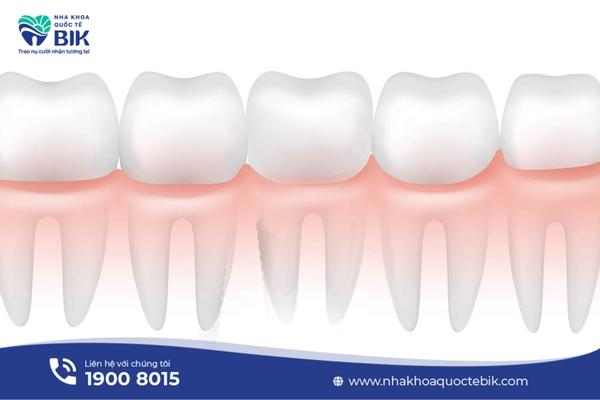
If you choose an unreliable dental clinic or choose porcelain crowns that do not guarantee quality, the following consequences will occur:
4.1. Pain, discomfort
You will feel pain and discomfort for a long time if before proceeding with porcelain crowns, the doctor did not completely cure diseases such as periodontitis, pulpitis, gingivitis, etc. In addition, if there is a feeling of pain when chewing, the cause is because the porcelain crown is attached too far from the tooth stump, you need to go to the dentist for timely adjustment.
4.2. Teeth are vulnerable
During the tooth grinding process, the doctor may be careless and unprofessional and touch the tooth pulp, so the tooth will not be as strong as before. From there, the tooth will be more easily damaged when eating food that is too hard, too chewy or when impacted strongly.
4.3. Pulpitis
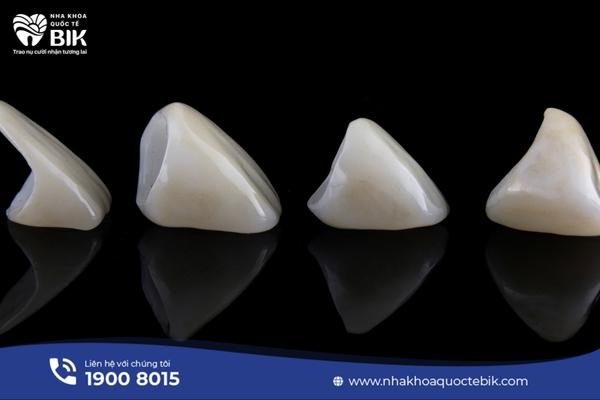
In case the pulp is too affected, it will lead to pulpitis. This is the most serious consequence because it can easily kill the permanent tooth.
4.4. Loss of the shape of the real tooth
Although the tooth has a multi-layered structure, it does not have the ability to regenerate itself when damaged. Grinding the tooth stump will make the real tooth smaller and unable to restore its original shape.
5. Cosmetic porcelain crown procedure
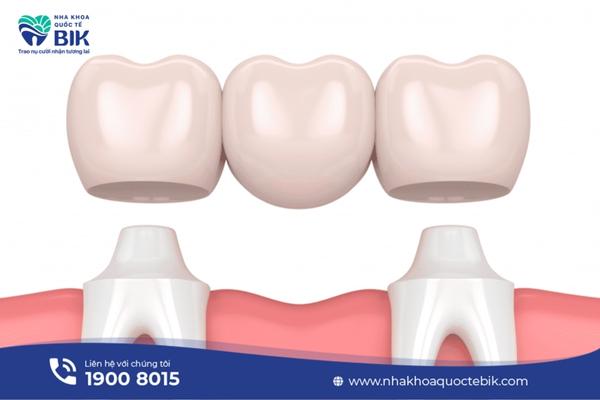
An international standard porcelain crown procedure will include the following basic steps:
5.1. General examination
First, the doctor will examine the customer’s general oral health and take an X-ray if necessary. If the tooth condition is suitable for porcelain crowns, the doctor will carefully advise on suitable types of porcelain crowns.
In addition, diseases such as gingivitis, bleeding gums, bad breath, etc. must be completely treated before porcelain crowns are applied.
5.2. Anesthesia
Before anesthetizing the porcelain-covered tooth areas, the doctor will perform oral hygiene steps such as scaling.
5.3. Grinding teeth and taking tooth stump impressions
The doctor will grind the real tooth stump to support the porcelain crown above. The grinding of the tooth stump must be done carefully and precisely to avoid future consequences. After that, the tooth stump impression will be taken with specialized materials and sent to the Labo room to make porcelain teeth. While waiting for the porcelain teeth to be completed, you will have your teeth temporarily attached with Acrylic to ensure aesthetics and chewing function.
5.4. Attaching porcelain teeth
After trying on the porcelain teeth and adjusting if necessary, the porcelain teeth will be fixed to the real tooth stump with specialized glue.
6. Does porcelain crowns hurt?
In essence, grinding the tooth stump to cover it with porcelain is just grinding the outer enamel layer, not affecting the pulp or tooth structure, so there will be no pain. Although the tooth grinding process will inevitably cause a feeling of soreness, the doctor will inject anesthetic so that you do not feel too uncomfortable
7. How long does a porcelain tooth last?
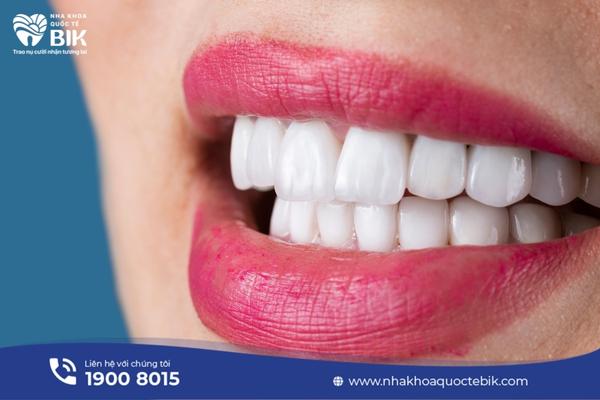
The lifespan of porcelain teeth lasts about 5-20 years depending on the following factors:
7.1. Types of porcelain teeth
– Metal porcelain teeth
If metal porcelain teeth are covered according to the correct procedure, they will have a lifespan of about 5-10 years. This type of porcelain teeth has a relatively short lifespan because the metal oxidation process that occurs in the oral cavity will lead to blackening of the gum line.
– All-ceramic teeth
All-ceramic teeth on the market have a lifespan of 15-20 years depending on the type. The characteristic of this porcelain tooth line is that it is made entirely of porcelain, and has been tested to be safe for the oral cavity and does not cause black gum lines.
7.2. Porcelain tooth placement position
If the porcelain tooth is placed in a position that has to bear a lot of force during chewing, it will affect the durability of the tooth.
7.3. How to take care of your teeth after porcelain tooth capping
It is necessary to have a suitable diet and oral hygiene to avoid damage and at the same time prolong the life of the porcelain tooth.
So whether porcelain tooth capping is good or not depends on your specific oral condition and other factors. However, you should choose a reputable, quality dental clinic with a team of highly skilled doctors to avoid causing dangerous effects on your teeth and mouth.

